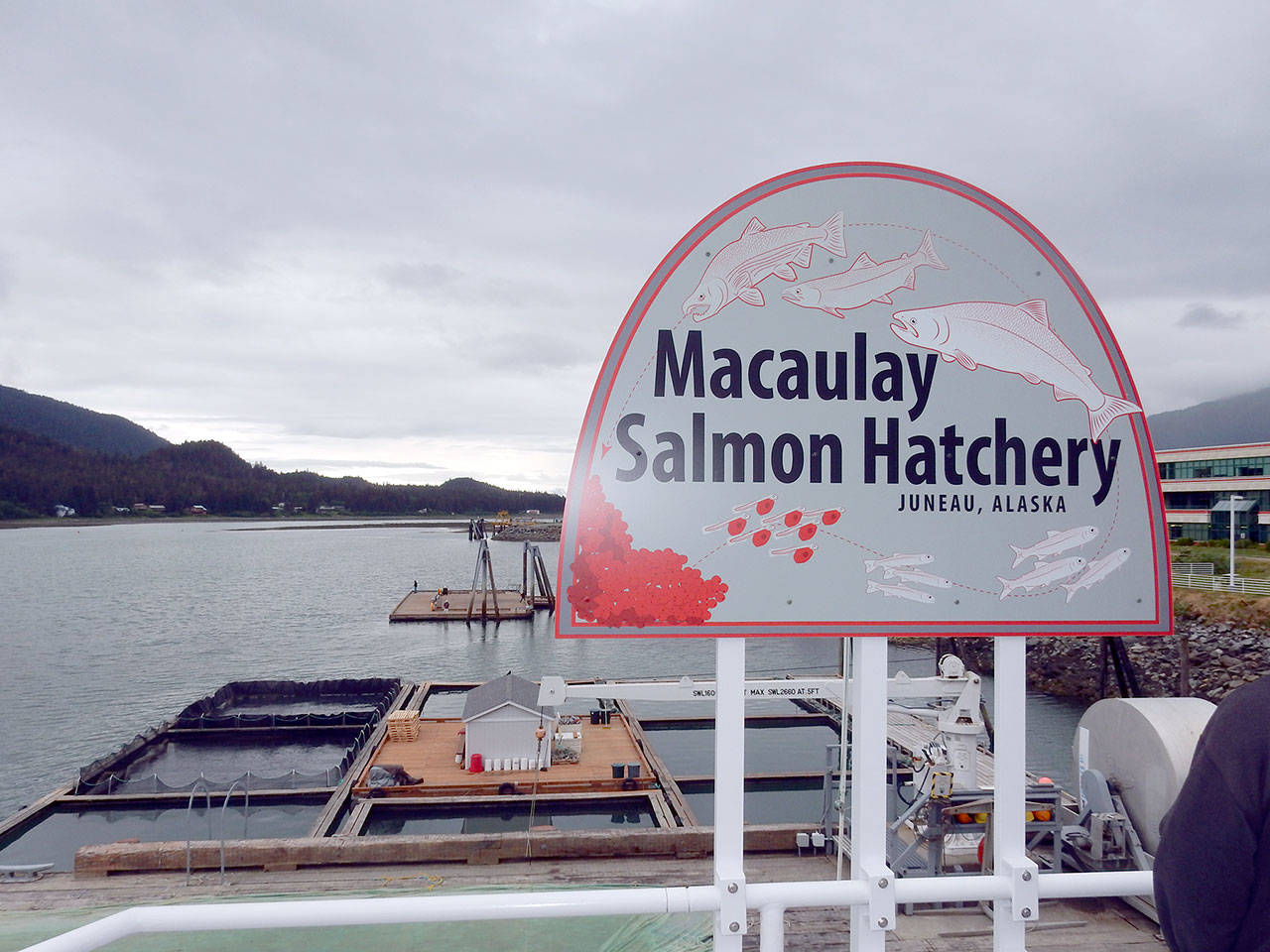THERE’S AN OLD saying around here that good fences make good neighbors or good neighbors make good fences, whatever.
The fact is, it’s too late to fix the fences on the busted-up fish farm that dumped a portion of its over 300,000 Atlantic salmon into the Strait of Juan de Fuca. It’s been called an emergency that’s as bad as an oil spill.
Of course, we should have known this would happen because it’s happened before. Ask any farmer: There is not one domesticated animal on this Earth that does not get out of their pen at every opportunity.
Domesticated animals have a lot of spare time behind those fences where they spend every moment planning to get out.
There used to be mink farms all around the Olympic Peninsula back when mink coats were politically correct. Once that craze was over, the mink that didn’t escape from the mink farms were just turned loose, blending in with the local population.
Atlantic salmon are a different matter, of course. Scientists predict they could imperil our wild salmon even more than the humans have, although there is no evidence to support this hypothesis.
It is the humans who destroyed our runs of native salmon. They were a biomass larger than the 60 million bison that once roamed North America.
The salmon, like the bison, were exterminated for profit.
The bison were replaced by herds of domesticated beef behind fences. The native salmon are being replaced by domesticated salmon behind fences.
Now they have gotten loose, but does that have to be a bad thing?
So what if the mouths of the Atlantics are upside-down, a side effect of the chemicals they eat to survive in the pens? Fishermen don’t care if the salmon have two heads, just as long as they get to catch something.
We have to face the fact that no matter how much money we spend, salmon restoration in Washington has been a failure. With fishing getting worse every year, it seems as if there should be some way we could use modern technology to bring back our salmon.
Can you imagine 300,000 king salmon or coho, dogs or humpies in the straits? Perhaps the salmon restoration industry could learn a thing or two from the salmon farming industry, since whatever we are doing now doesn’t seem to be working.
Perhaps if we studied a successfully restored salmon fishery, we here in Washington could get a clue.
A graduate of the now-discontinued fisheries program at Peninsula College in Port Angeles moved to Juneau, Alaska. He began raising salmon in a cave behind a waterfall.
This eventually led to the construction of a $10 million salmon hatchery in downtown Juneau named for this most distinguished Peninsula College alumnus, Ladd Macaulay. The Ladd Macaulay Salmon Hatchery releases 100 million salmon a year into net pens all over southeast Alaska.
Crowds of tourists pay to tour the Macaulay hatchery. The salmon from the Macaulay hatchery support the hatchery and aquarium as well as a commercial and recreational fishing fleet, shore facilities, resorts and endangered marine mammals that flock to the region to gorge on salmon.
There is a monthlong salmon derby.
People carry garbage cans when they go fishing to carry home their limit of six salmon.
Net pens for Atlantic salmon are not going away. An ever-growing human population demands a domesticated food source.
Maybe we should use salmon pens to save our native salmon and spill a few jillion into the Strait of Juan de Fuca every year.
We’ll thank ourselves later if we do the right thing now.
_________
Pat Neal is a fishing guide and “wilderness gossip columnist” whose column appears here every Wednesday.
He can be reached at 360-683-9867 or by email via patneal wildlife@gmail.com.

